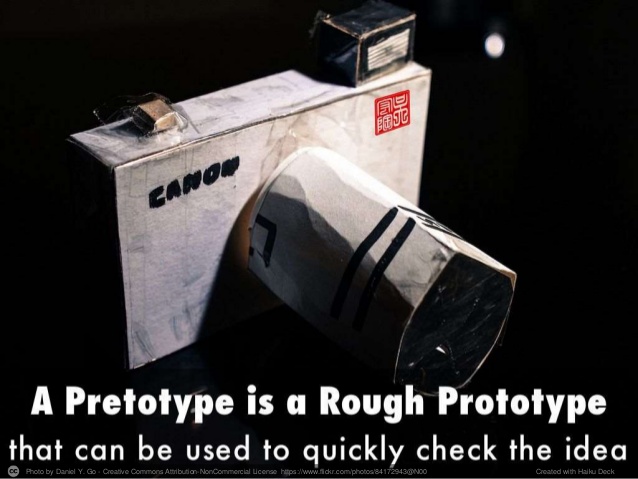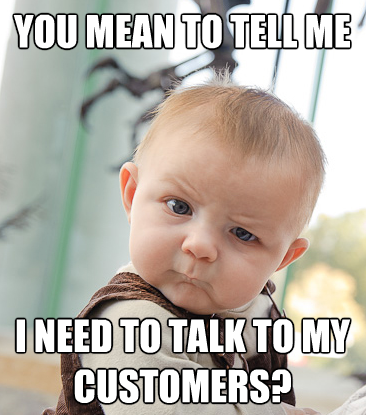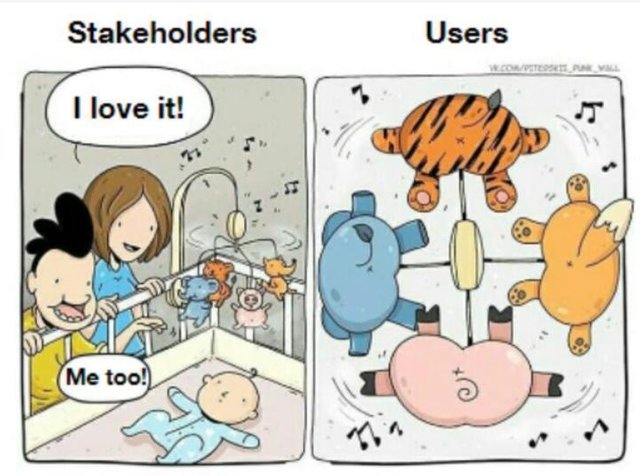5 Lies Your Market Research Team is Telling You
13 January 2020
In business, we are led to believe that collecting more data will help us to make better decisions. And when posed with an ever-growing list of business and customer challenges, teams are naturally searching for a better understanding of their customers.
So, we do what we’ve always done – turn to market research. This should give us a better understanding of how to approach a challenge, right?
Wrong.
Market research fails because you don’t know what you don’t know. Market research also takes too long and involves too many variables. Here are the five major misconceptions about market research, and how to get better results from research and testing:
Lie #1: You don’t need a prototype to get useful user data
A prototype, whether it’s a landing page, a video, or something clickable, will give actual yes or no answers to all your most pressing customer or user questions. This allows you to see how users are interacting with a solution instead of talking about how they feel, or guessing what they want.
Prototypes give you clear direction because they are binary: Does this make sense, or doesn’t it? Does this solve a problem for you, or doesn’t it? Also, insights from prototypes helps with alignment, because your teams can’t argue with the concrete results of user testing.
Solution: Never, ever skip the prototype!
By creating a prototype for your product or service, whether it’s a paper mock-up, a quick video, or a smoke-and-mirrors chatbot, and testing it with 5 users, you can gain 80% of insights on your problem space. Without this, the answers you’ll get from your users won’t be tangible or actionable. Always have something to show users if you’re looking for reliable insight.
Lie #2: Users are hard to find and recruit
Clients have been led to believe that recruitment and testing is a mammoth task, and while it’s true that it’s not easy, it’s also never been easier.
With social media, users are only a few clicks away. Try one of the many platforms that allow you to segment an audience, then place an ad asking this audience to participate in testing in exchange for a small reward. You don’t have to use your company or brand name, and you don’t have to disclose too much information about the project, so don’t let confidentiality deter you.
We hear businesses telling us that they don’t want to “bother” their users all the time. This is a huge misconception!
First, users are often excited about being asked their opinion. People love to talk about themselves and their lives, so engaging them in your product development process is not only enjoyable for them, but can build advocacy and brand loyalty for you.
Second, if you’re not actively engaging with your customers on a regular basis, you’re missing a massive opportunity to create solutions with a better chance of success.
Solution: Your users are everywhere
Some of the most successful products and services have been based on the quickest, dirtiest types of user testing. Take your prototype to the street to get some quick results, or for B2B products, find time with colleagues and clients to give your team more insight than a detailed market research report ever could.
One of our major clients built an app to be used for ordering products in their retail locations. They engaged us to do user interviews in order to check the pulse of the customers in-store, as well as finding out how they were interacting with the app.
Eight out of ten customers in the store were delighted to share their insights and experience about the store. But, to our client’s surprise, none of the customers were using the app, primarily because they didn’t know about it.
Within a day, we had identified a major problem, simply by going into the store and speaking with customers. We also came up with a cheap, simple solution (a couple of posters) to inform customers about the benefits (and existence!!) of the app.
Lie #3: Market Research will give you clear answers
When it comes to building digital products and services, market research can be broad and unfocused. Your results will give high level understanding of market behaviour, but they won’t give you clear direction on how your users or customers will behave in specific scenarios, or in relation to a product or service.
Results are left open to interpretation, and as a result, insights are not immediately or accurately actionable. Human beings are prone to bias, and without the clarity provided by user testing, data sets are susceptible to the many preferences, agendas and influences of our very human teams.
In his famous TED talk, Barry Schwartz uses a great “salad dressing” analogy to illustrate that not only do people not know what they want or what will make them happy, but once they’ve made a choice, they still don’t know if it was the right one!
Don’t force users to come up with a solution for you – give them a solution (in the form of a prototype) as a starting point and go from there. This works especially well because people are much more likely to tell you what they don’t like about something than what they do like. Validation and direction are achieved through prototyping, so if you’re looking to market research for concrete answers on your product or service, you should probably look elsewhere.
Solution: User testing is Market Research on steroids.
User testing is the process of testing how a user responds to a product or service by interacting with a test object, ie. a prototype. It’s faster, more effective, and gives greater direction. In one Design Sprint with a mobile app client, both our team and the client team were completely aligned on the focus area of the product. We were all completely convinced that customers would want to use our product in order to make a purchase.
As usual, we created the prototype for the agreed-upon set of features, and ran user testing with five users. The results blew us away.
After only the first two interviews, it was clear that we were not only on the wrong path, but that there was an easier-to-create feature that customers were super excited about. Instead of having to build a bulky e-commerce solution, we quickly pivoted to what the users wanted and needed. This process took a total of only four days.
Lie #4: Market Research is an effective use of time
When done correctly, market research should take a long time – months, even.
First, the assumptions need to be mapped out in detail. Then, for quantitative data, hundreds of customers need to be recruited, interviewed and the results synthesized. However, user testing can provide the same, if not higher quality results in a fraction of the time.
With the right team, you can get actionable, immediate insight in only a few days. This speed and focus will help you to get your products and services to market faster, giving you both competitive advantage and access to user data post-launch.
Solution: Speed is key
In today’s competitive digital market, time is everything. With an experience product team, the user testing process can be completed in a matter of days, allowing your team to iterate faster, and with more certainty. Many of our clients are shocked at the speed in which the can gain traction, especially if they are from larger, more traditional companies, where progress can be extremely slow.
“I didn’t realize how much could be done in such a short amount of time.” an Intrapreneur at Bayer AG
Lie #5: You have to be a researcher to get useful data
Guess what?! User testing is actually just talking…!
Anyone with the ability to speak can conduct high-level user testing. Your only goals are to keep your users talking in a natural way, and to stay on-topic. Sometimes, this is the greatest challenge – making sure customers aren’t telling you their life story, even if it’s a good yarn!
Another tricky skill to learn, and one that we could all do better, is asking open-ended questions. We are aiming to guide our users through the prototype, not towards a specific outcome. Almost everything they say is valid, there are no right or wrong answers, so be open!
Some great questions might include:
- What do you see on this page?
- How does that make you feel?
- Could you tell me what you think you should do right now?
You should work backwards from your product goals to determine the right types of questions to keep the conversation going. A solid interview script with alleviate any jitters on your end, and make your interviewee more comfortable and trusting of you.
Solution: Use the right team.
Don’t ask a market research team to define or solve your user problems. Digital product specialists are trained to make the most of your subject matter expertise, while bringing their specialised understanding of how to use digital products and services to your advantage. Make your digital offering work harder and smarter for you by working with folks that know how to get you there!
If you’re working in digital products or services, you need to have basic research skills in order to understand how to find the answers to your questions. There are loads of free resources online (including info on the right questions, formats, etc) on how to do research properly. Check out:
Finally, don’t forget that your customers are people, too! Enjoy the conversations you have with them, and look at this as an opportunity to make a positive difference in their lives.
How often do you test your product or service with users? And what’s the most unexpected thing you’ve found in the process? We’d love to hear your stories in the comments below!








